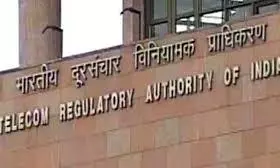TRAI Convenes Regulators’ Meet on Spam Calls

New Delhi: In order to address the persistent issues of spam calls and messages, telecom watchdog Telecom Regulatory Authority of India (Trai) on Tuesday convened a meeting of joint committee of regulators where all the representatives from key regulatory bodies, including the Reserve Bank of India (RBI), the Securities and Exchange Board of India (Sebi), the ministry of corporate affairs (MCA), the department of telecommunications (DoT), and the ministry of home affairs (MHA) participated, the ministry of communications said on Wednesday.
Issuing a statement, the ministry said that during the meeting, regulators deliberated a variety of measures aimed at curbing the flow of unsolicited communications. “One of the primary topics was the role of entities within the banking, financial services, and insurance (BFSI) sector in preventing spam. The committee emphasised the importance of these entities in implementing robust anti-spam measures,” the statement said.
The key issues discussed in the meeting include unsolicited calls from unauthorised 10-digit mobile numbers as also from landline numbers, the use of 140 series by principal entities (entities making commercial communication using telecom resources) for making promotional calls, the use of 160 series by the principal entities for making service and transactional calls for easy identification by the consumers among others.
Another significant point of discussion was the sharing of information by digital platforms to help identify and block spam sources. The committee highlighted the need for better cooperation and data sharing among platforms to enhance the effectiveness of spam prevention strategies.
Besides, the acquisition of digital consent from users was also a focal point where all the regulators stressed the importance of obtaining clear and informed consent from users before sending any communications. This measure is seen as crucial in ensuring that users have control over the messages they receive. Besides, strengthening the know your customer or KYC measures was another key agenda item where enhanced KYC processes can help in verifying the identity of users and reducing the chances of fraudulent activities that often lead to spam.
In addition, the committee also talked about the white listing of URLs, over-the-top (OTT) links, and callback numbers. This process involves creating a list of approved links and numbers that are less likely to be associated with spam, thereby helping to filter out unwanted communications more effectively.

